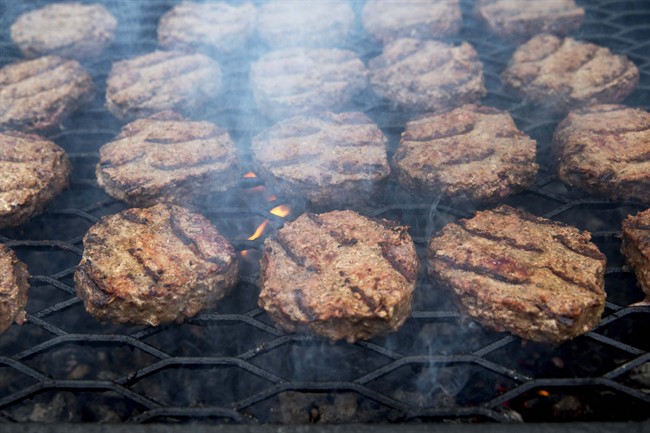NEW YORK – Fewer Americans are getting sick from a nasty germ sometimes found in undercooked hamburgers, the government reported Thursday.

The latest report card on food poisoning shows illnesses from a dangerous form of E. coli bacteria have fallen 20 per cent in the last few years.
That E. coli strain got attention in the early 1990s when it was the culprit in a deadly outbreak linked to hamburger meat. Leafy vegetables have also been tied to illnesses; a 2006 outbreak of E. coli was traced to contaminated fresh spinach.
Regulatory scrutiny of the beef industry since then has contributed to the decline, as has voluntary changes in the produce industry, health officials said.
READ MORE: Why health officials are telling consumers to stop washing chicken
The report from the Centers for Disease Control and Prevention counts food poisoning cases in only 10 states, but is believed to be a good indicator of national trends. In those states, total illnesses and deaths have been relatively stable over the last five years.
Over the last four years, illness rates were also flat for these leading causes of food poisoning:
— Salmonella, which continues to be the No. 1 cause of food poisoning. Salmonella accounts for about 38 per cent of illnesses— far more than the 6 per cent attributed to E. coli.
— Campylobacter, a bacteria commonly linked to raw milk and poultry, which ranks second.
READ MORE: Is the ‘5 second rule’ real? Scientist says it’s all about location
— Listeria, which continues to be particularly dangerous but also rare. A recent deadly listeria outbreak was been linked to ice cream.
The CDC estimates that 1 in 6 Americans get sick from contaminated food each year, though most cases are not reported
To prevent food poisoning, health officials advise: Carefully wash and clean food, and cook meat, poultry and eggs thoroughly. Avoid raw milk and unpasteurized juices. And promptly refrigerate leftovers.
___
Online:
CDC report: http://www.cdc.gov/mmwr



Comments